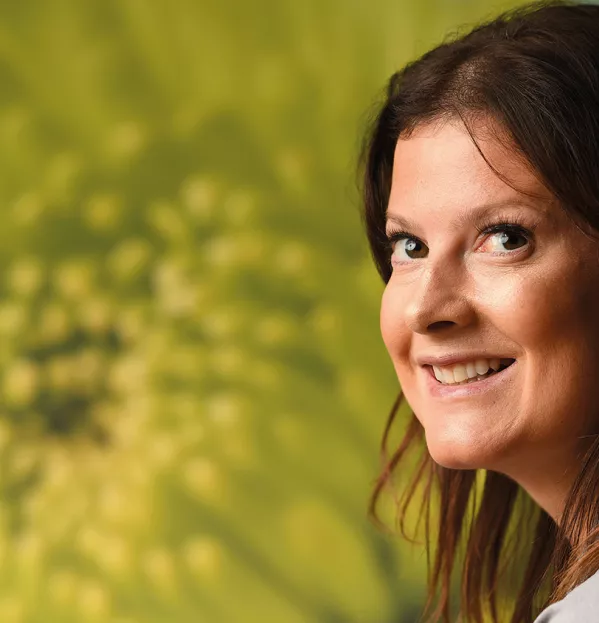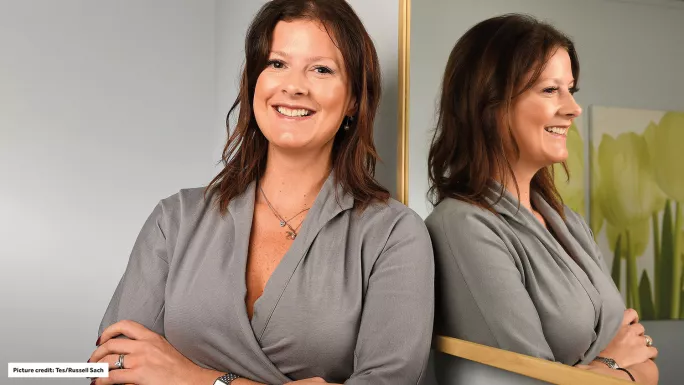‘Making changes that encourage women in the sector is hugely important’

When the government prioritised education standards as part of its vision for a “Northern Powerhouse”, it turned to four established academy trusts, and one new contender: Reach4.
The organisation was set up as a spin-off of Reach2, the largest primary-only academy trust in England, and earlier this year, it signalled its independence by renaming itself Astrea Academy Trust.
Now, government ministers have once again asked the trust, under chief executive Libby Nicholas, to help solve a problem - this time, the fallout from the collapse of Wakefield City Academies Trust (WCAT).
Astrea is due to take over two of WCAT’s Doncaster schools that have been left in limbo. For Nicholas, it is the latest challenge in a career that started off with a “little stint” in banking and then moved into business with the John Lewis Partnership’s fast-track graduate scheme. The latter role was, she says, “completely life-changing”.
She was dispatched to a charity one day per week, helping the Prince’s Trust to work with young people who were out of education, employment and training in Croydon, South London. “I was there to develop their self-esteem, their confidence, enable their team work and go through their CVs with them,” Nicholas recalls.
“I just realised that I had fallen in love with what I was seeing around me, which was young people having been let down by grown-ups, but then being built back up to believe in themselves. I felt a huge sense of wellness myself at being able to contribute to that unlocking of potential.”
After reaching that decision that her future lay in helping young people, her journey to the top at Astrea has been swift.
During her NQT year teaching English at Coloma Convent Girls’ School in Croydon - a Catholic comprehensive - she was asked to be a head of year. Her headteacher, she says, was the type of leader who “sees hunger and passion and wants to develop it”.
Three years later, Nicholas moved into the private sector, becoming assistant head at Sutton High School in South London, where she had once been a pupil. It meant that she was now her old teachers’ boss.
“In a way, it was wonderful, because I am who I am because of them,” she says. “I remember when the librarian taught me how to critically analyse a poem. I remember when one taught me how to understand analysis of numbers. I am a product of my education and to come back and contribute to the next stage of that school was really unique.”
She stayed within the Girls’ Day School Trust group of schools for six years. Although best known for its independent schools, the organisation also had a role in state education, and its two academies provided Nicholas’ first taste of the academies sector.
She has remained in academies since, with a stint as regional director for education for Academies Enterprise Trust in the south and west, before joining what was then Reach4. She says that her experiences in the private and state sectors - in grammar, comprehensive and academy schools - have led her to be “quite system-agnostic”, although she admits that the differences interest her.
“Quality of teaching is the focus in the state sector. Quality of experience is the focus in the independent sector. They are quite different things,” Nicholas says. It was the emphasis on teaching that attracted her to state schools.
‘This issue’s still very alive’
Nicholas’ rise to become one of the most prominent female leaders in the academy sector has been rapid, and she feels strongly about the need to help more women to become leaders in education.
“The female leadership issue, for me, is still very alive,” she says. “We are seeing it shift to a degree. There are some great female CEOs out there; you have got Amanda [Spielman] as Her Majesty’s chief inspector, you have got some great female regional schools commissioners, but I still think there is more that can be done.”
Nicholas acts as a coach for women in education, in both her own trust and in others.
Flexibility over working hours - she wants Astrea to be “a human organisation” - is one of the areas where she believes schools can quickly make a difference.
“I would like colleagues to work within Astrea from training to retirement, and that means we are going to go through the whole gamut of human emotions - births, death, sickness, you name it. An organisation, to my mind, should flex around that human need, not say, ‘But in our policy it states x or y.’”
Her comments are timely, given the summit held this week by the Department for Education to find ways to encourage flexible working in schools. Nicholas calls for female leaders to take decisions that make it easier for other female leaders to come through.
“Isn’t it absurd for a mother to drop their child off at a different nursery and then come to school? It doesn’t make any sense,” she says. “I would love for new mothers within Astrea to make sure they can see their child during the school day and breastfeed during the school day.”
Such a policy could involve having nurseries on site that teachers’ children can attend, she adds. “I think that making those structural changes, which encourage and foster women in the sector, is hugely important.”

Astrea currently has 19 academies - the original cluster in South Yorkshire, and two schools in Cambridgeshire that joined in June. It is intended that the latter will become part of a wider network of schools in that region.
When setting up the organisation, Nicholas thought hard about one of the central tensions in the academy trust model: what should be decided by the organisation at the centre, and what is best left to individual schools. It is something that has interested her since her days in business, when she saw similar dynamics at John Lewis.
For her, some elements have to be consistent due to the need for compliance - for example, safeguarding and control over money. But, she says, it is important to know “when to intervene and when to step back”.
“Mostly, autonomy and respect given to individual decisions should be a given, if it is going well, in my view - so you’re adding extra value from the centre. Things such as practice in the classroom, that’s magic. I’m not going to meddle with that, if it’s going well.”
That is not to say that difficult choices and decisions are not needed when Astrea takes on schools with long records of failure, and Nicholas talks about “tough truth-and-hope conversations”.
“The ‘truth’ is this is a school that has failed children and young people for the last six years - ‘That’s a just a fact, guys, and that has happened under your watch.’ The ‘hope’ is, ‘Here we are to help, you’re in the family now, and we are going to turn this school around.’”
So where next for Astrea? Its chief executive says that it was always intended to be a national organisation, but she talks cautiously about its expansion.
Nicholas speaks of the Cambridge cluster getting to “five or six schools over the next couple of years”. On top of the two WCAT schools in Doncaster that are due to come into the fold, the existing South Yorkshire cluster will grow “when we believe we can add value and create more value”.
If Astrea proves to be successful, do not be surprised if ministers come asking for help a third time.
You need a Tes subscription to read this article
Subscribe now to read this article and get other subscriber-only content:
- Unlimited access to all Tes magazine content
- Exclusive subscriber-only stories
- Award-winning email newsletters
Already a subscriber? Log in
You need a subscription to read this article
Subscribe now to read this article and get other subscriber-only content, including:
- Unlimited access to all Tes magazine content
- Exclusive subscriber-only stories
- Award-winning email newsletters